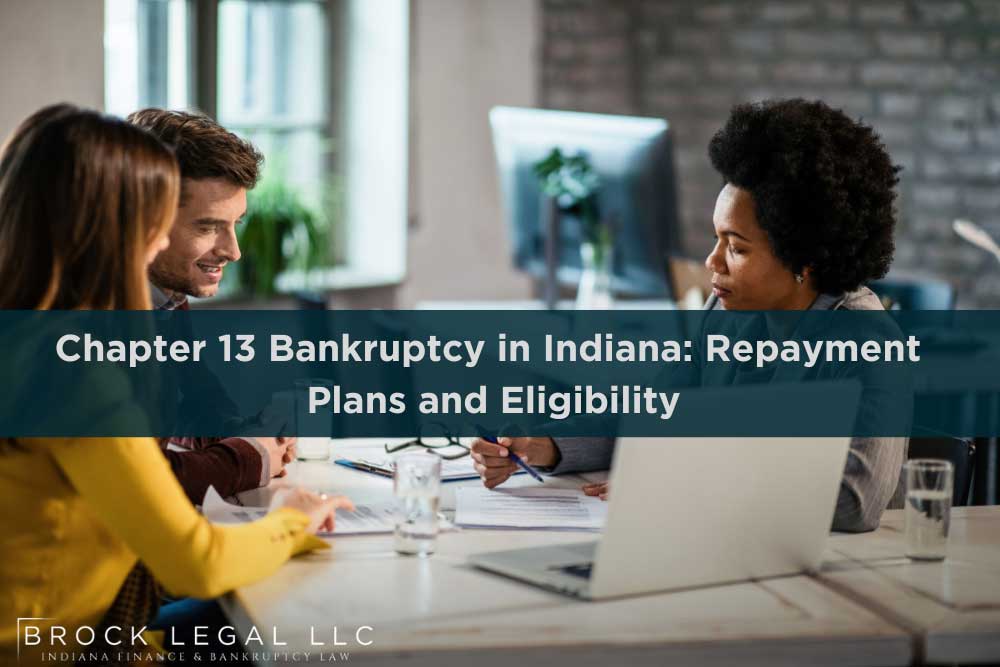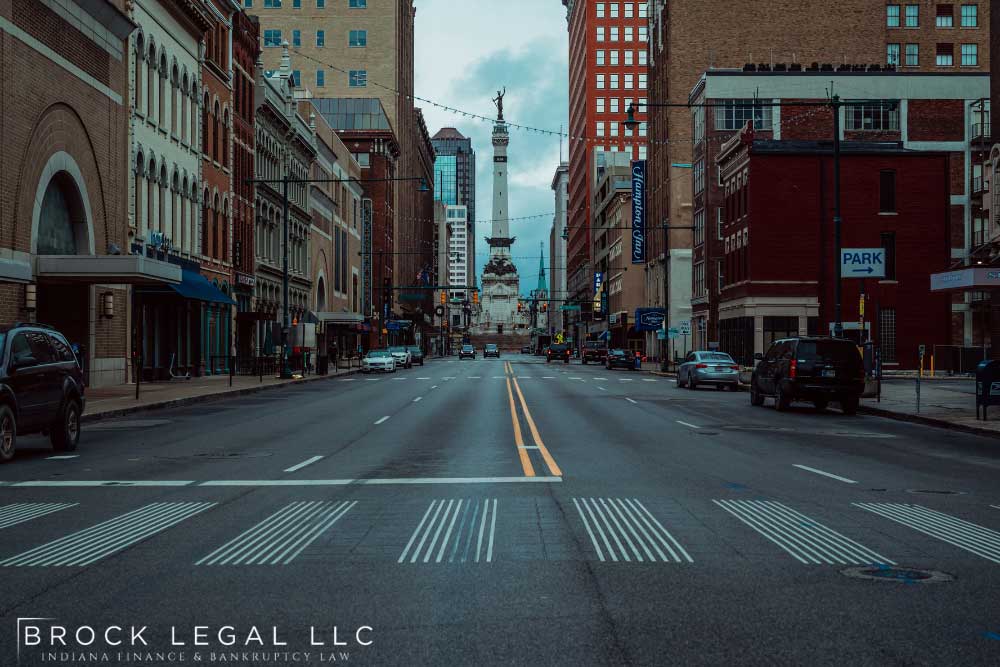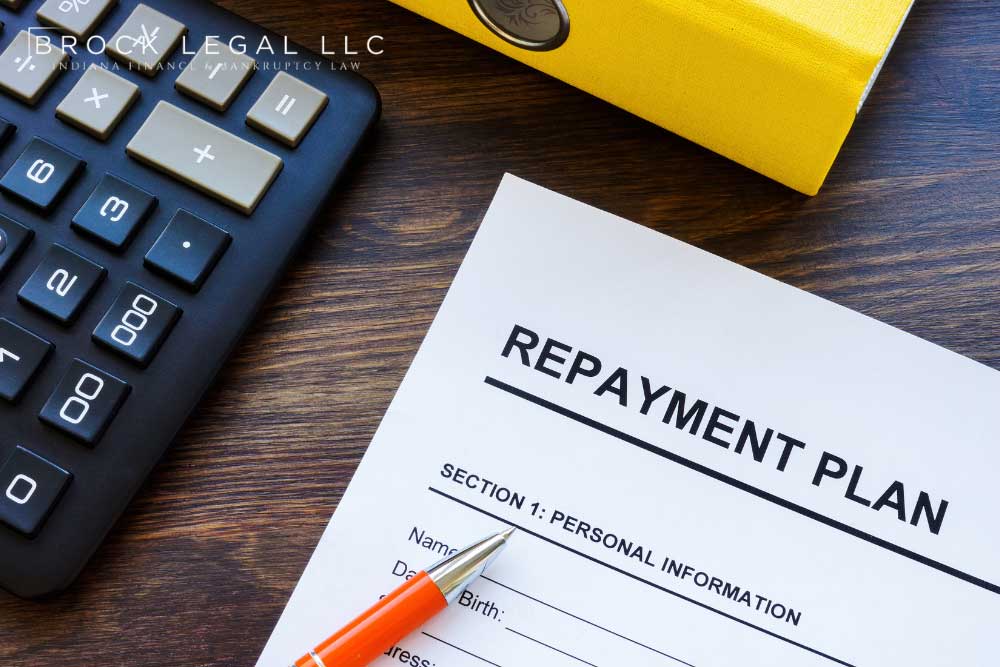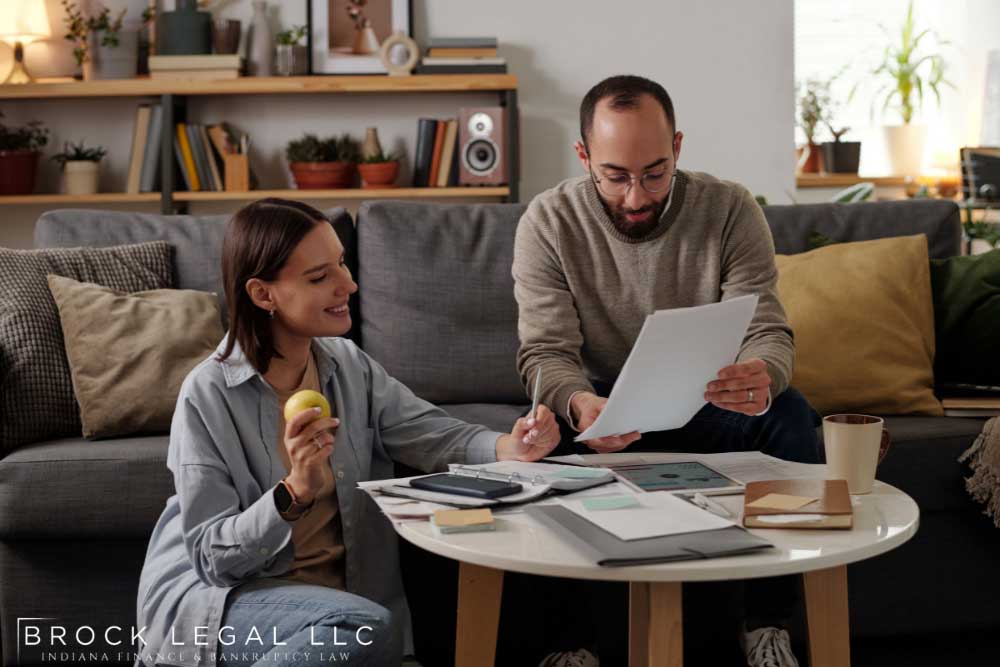Chapter 13 Bankruptcy in Indiana: Repayment Plans and Eligibility
by Attorney S. Zachary T. Brock

Table of Contents
Understanding Chapter 13 Bankruptcy in Indiana for Indianapolis Residents
When you are struggling to manage debt but want to keep your home, car, and other assets, Chapter 13 bankruptcy may be the solution. For many people in Indianapolis, Carmel, Greenwood, Fishers, and nearby cities, this chapter allows time to catch up on missed payments while stopping collection calls and foreclosure actions. Unlike Chapter 7, which wipes out debt by liquidating nonexempt property, Chapter 13 helps you repay part or all of what you owe through a structured plan based on your income.
Brock Legal has guided Indiana residents through this process for years. We help clients understand how repayment plans work, what debts can be reduced, and how filing gives them breathing room to rebuild stability. This guide explains Chapter 13 eligibility, the repayment process, and what to expect when filing in Indiana.
How Chapter 13 Bankruptcy Works in Indiana
The basic concept of a repayment plan
Chapter 13 is often called a wage earner’s plan because it is designed for people with regular income. You propose a repayment plan that lasts three to five years, during which you make monthly payments to a court appointed trustee. The trustee then distributes funds to your creditors based on the terms of the plan.
Once the plan is complete, most remaining unsecured debt such as credit cards, medical bills, and personal loans is discharged. The main advantage is that you keep your property while catching up on debts over time instead of losing it in liquidation.
How Chapter 13 stops creditor action
As soon as you file, an automatic stay takes effect. This stops wage garnishments, foreclosure proceedings, repossessions, and collection calls. It gives you time to reorganize your finances without constant pressure from creditors. If your home was in danger of foreclosure or your car was close to being repossessed, the stay provides immediate protection while your case moves forward.
Key benefits for Indianapolis families
- Keep your home and car: Chapter 13 lets you make up missed mortgage or vehicle payments over time while keeping your assets.
- Consolidate debt into one monthly payment: Instead of juggling multiple bills, you pay one amount through the trustee each month.
- Protect co signers: In certain cases, Chapter 13 can protect co debtors from collection on shared obligations.
- Build a fresh start with structure: The plan helps you regain control of finances without the stress of multiple creditors.

Chapter 13 Eligibility Requirements in Indiana
Who qualifies for Chapter 13
To qualify for Chapter 13 bankruptcy, you must have a steady source of income such as wages, self employment earnings, retirement income, or Social Security benefits and unsecured and secured debts within certain limits set by federal law. You must also be up to date on tax filings and not have had a recent bankruptcy dismissed for noncompliance.
Income and debt limits for Indianapolis residents
Eligibility depends partly on your total debt load. If your unsecured debts and secured debts exceed federal limits, you may not qualify for Chapter 13. In those cases, Chapter 11 or Chapter 7 may be more appropriate. The court will also review your disposable income to ensure you can make regular plan payments.
If your income is too low to fund a feasible plan, you might need to explore a Chapter 7 bankruptcy in Indiana instead. A qualified attorney can help you review both options before filing.
Completing credit counseling
Before filing, you must complete an approved credit counseling course. This course helps confirm that you understand the implications of bankruptcy and that a repayment plan is the best solution for your situation. Proof of completion must be filed with the court to proceed.

Building a Chapter 13 Repayment Plan in Indiana
How repayment amounts are determined
Your repayment plan is based on several factors, including your disposable income, the type of debts you owe, and the value of your assets. The trustee and court review your proposed plan to ensure it meets legal requirements. Here are the key steps we follow with clients:
- Review income and expenses: We calculate monthly disposable income using pay stubs, tax returns, and necessary living costs.
- Categorize debts: Secured debts (like mortgages and car loans) get prioritized differently than unsecured debts (like credit cards).
- Propose a realistic monthly payment: We ensure the plan fits your budget so you can make consistent payments without falling behind again.
- Submit for court approval: The court holds a confirmation hearing to approve the plan. Once confirmed, you begin making payments.
Most Chapter 13 plans last between 36 and 60 months. The length of your plan depends on your income level and how long it takes to satisfy the required debt obligations.
What debts are included in the plan
Your plan can include a wide range of debts:
- Mortgage arrears: Catch up on missed mortgage payments and prevent foreclosure.
- Car loans: Pay off overdue amounts and maintain ownership.
- Tax obligations: Many overdue taxes can be paid through the plan over time.
- Unsecured debts: Credit cards, medical bills, and personal loans can often be reduced or eliminated after successful completion.
This structured approach provides a manageable roadmap to regain control of your financial future.
Protecting Property Through Chapter 13 Bankruptcy in Indianapolis
One major advantage of Chapter 13 is asset protection. Unlike Chapter 7, you are not required to sell property to repay creditors. As long as you maintain your plan payments, you can typically keep your home, vehicles, and household belongings.
Homestead and personal property protections
Indiana’s exemption laws apply to Chapter 13 cases just as they do to Chapter 7. The Indiana homestead exemption can shield a portion of your home equity, while other exemptions cover personal property, vehicles, and retirement accounts. These protections keep your plan focused on repayment rather than liquidation.
Keeping current on secured debts
Your repayment plan must account for ongoing mortgage or car loan payments. Staying current on these obligations during your plan is crucial. Missing payments could put your assets at risk even after filing. Your attorney will help structure the plan so the payment schedule works with your income.
Related reading from the Brock Legal blog
For insight on how exemptions affect both chapters, visit our post on the role of exemptions in Indiana Chapter 7 bankruptcy.
The Chapter 13 Bankruptcy Process for Indianapolis Residents
Step by step process
Here is what to expect when filing Chapter 13 in Indiana:
- Initial consultation: We review your debts, income, and goals to decide if Chapter 13 is right for you.
- Prepare and file the petition: We gather financial documents, create your plan, and file the case with the bankruptcy court.
- Automatic stay begins: This stops most collection efforts and foreclosure actions immediately.
- Attend the 341 meeting: You will meet briefly with the trustee to review your plan and answer simple financial questions.
- Plan confirmation: The court holds a hearing to confirm the plan. Once approved, you make regular payments to the trustee.
- Completion and discharge: After all payments are made, the court discharges eligible debts, giving you a clean slate.
Throughout the process, communication with your attorney is key. At Brock Legal, we keep you informed at every step so there are no surprises.
How long Chapter 13 takes in Indiana
Most plans last between three and five years. The exact duration depends on your income, debt amount, and goals. If your income is above the state median, a five year plan may be required. The goal is to make the plan realistic and sustainable so you can complete it successfully.

Common Mistakes to Avoid When Filing Chapter 13 Bankruptcy in Indiana
Pitfalls that can slow down or derail your case
Even a strong plan can face challenges if certain steps are overlooked. Here are mistakes we help clients avoid:
- Filing incomplete or inaccurate paperwork: Every income source, expense, and debt must be reported. Missing details can cause delays or case dismissal.
- Falling behind on plan payments: Consistency is critical. Late payments can jeopardize your case.
- Ignoring trustee or court communications: Prompt responses to document requests or plan changes keep your case in good standing.
- Not updating your attorney about changes: Major life changes, like job loss or medical emergencies, can affect your plan. We can file modifications if we know about them early.
- Using credit after filing: Taking on new debt during your plan can violate court orders and complicate progress.
Staying organized, honest, and proactive helps you complete the plan and secure your discharge on schedule.
Choosing the right attorney for your Chapter 13 case
A local attorney familiar with Indiana’s bankruptcy trustees and courts makes a big difference. At Brock Legal, we know how each trustee operates, what documentation they prefer, and how to handle objections before they grow into problems. That local insight saves time and stress for our clients.
FAQs: Chapter 13 Bankruptcy in Indiana
Chapter 7 eliminates most unsecured debts quickly but may involve selling non-exempt property. Chapter 13 creates a structured repayment plan that lets you keep property while paying back debts over three to five years.
Yes. Filing Chapter 13 immediately stops foreclosure through the automatic stay. The plan then allows you to catch up missed payments over time and keep your home.
If income changes significantly, your attorney can request a plan modification or, in some cases, convert your case to Chapter 7. Communication with your lawyer is essential so adjustments can be made quickly.
Usually, you only attend the 341 meeting and possibly a confirmation hearing. Both are straightforward and guided by your attorney.
Certain debts, like recent taxes, child support, and student loans, usually cannot be discharged. However, these debts can often be included in the repayment plan to make them more manageable.
Contact Brock Legal, LLC: Talk With an Indianapolis Bankruptcy Lawyer About Chapter 13
If you are behind on payments or facing foreclosure, Chapter 13 bankruptcy may give you the second chance you need. Brock Legal helps Indianapolis residents design repayment plans that protect their homes, vehicles, and wages while creating a realistic path to debt freedom. You will know your options, your costs, and every step before filing.
Call 317.505.0336 or email zach@indyfinancelaw.com to schedule a free consultation with an Indianapolis bankruptcy lawyer who can help you move forward confidently.
Attorney S. Zachary T. Brock

Attorney S. Zachary T. Brock
Zach empowers individuals faced with financial challenges by providing them with effective solutions and unwavering support in the areas of consumer finance and bankruptcy law.
By actively listening and empathizing with each client, Zach works to gain a deep understanding of every individual or family’s unique circumstances. This helps him tailor his legal strategy to best meet the needs of each client.
“No matter what may be weighing you down financially, Brock Legal is here to help. My mission is to help navigate you through whatever stressful circumstance you may be faced with, by offering unparalleled education and service in the areas of consumer finance and bankruptcy law. Let us show you how our firm can help. Contact Brock Legal today!”
-Zach



